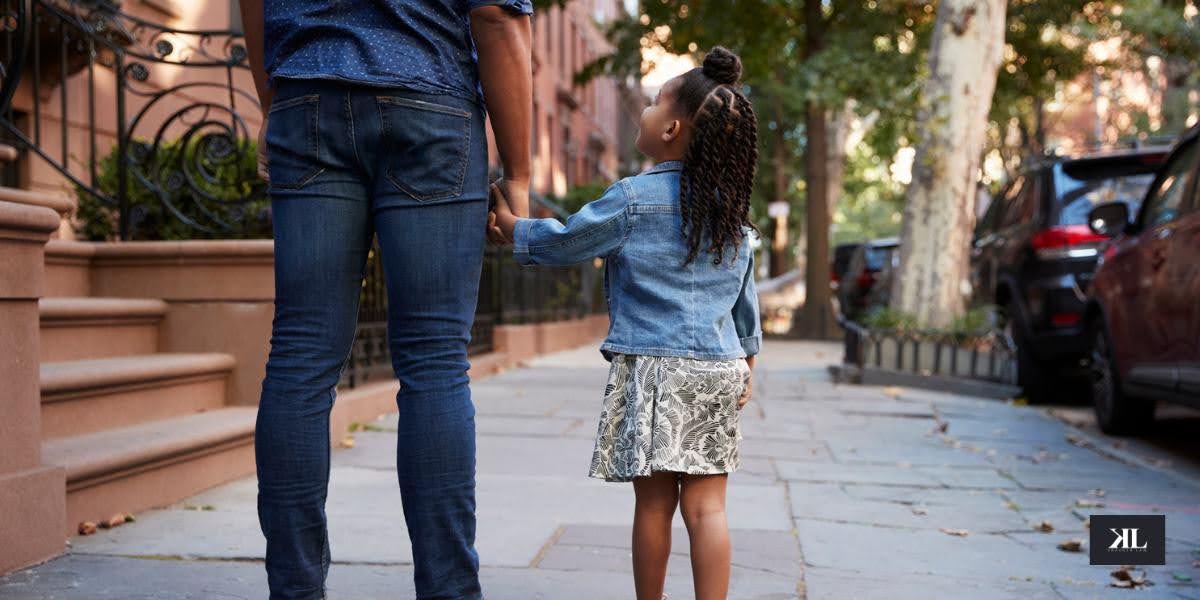When you’re dealing with family law in New York City, one big question that comes up for parents with sole custody is whether they have to allow visitation. It can be confusing, especially when emotions are involved. In this post, we’ll explore the question, “If I have sole custody do I have to allow visitation?” and break down what the sole custody meaning is, so that you have a clear understanding of your rights and responsibilities.
What Does Sole Custody Mean?
First things first—let’s talk about what sole custody meaning is. In New York, having sole custody means that one parent has both physical and legal custody of the child. This means that the child lives with that parent most of the time, and that parent gets to make important decisions about the child’s life, like where they go to school, what kind of medical care they receive, and their religious upbringing.
While having sole custody gives you a lot of authority, it doesn’t necessarily cut the other parent out of the child’s life completely. In most cases, the non-custodial parent (the one without custody) still has the right to spend time with the child—this is called visitation or parenting time.
Understanding Visitation Rights: A Closer Look
When it comes to child custody, visitation rights are a topic that often brings up a lot of questions and concerns. Even if you have sole custody, where you are the primary decision-maker and your child lives with you most of the time, the other parent typically still has the right to spend time with your child. These visitation rights are usually detailed in a court order, which is a legal document that clearly outlines when, where, and how the non-custodial parent can visit the child. But there’s a lot more to it, so let’s break it down.
What Are Visitation Rights?
Visitation rights refer to the legal rights granted to the non-custodial parent—the parent who doesn’t have primary custody of the child—to spend time with their child. The idea behind visitation is that a child needs to have a relationship with both parents, even if they don’t live together. The court generally believes that maintaining a connection with both parents is in the best interest of the child.
These rights are not just about seeing the child whenever the non-custodial parent wants. Instead, the court order specifies a schedule that both parents are expected to follow. This could include weekly visits, overnight stays, or even longer periods during holidays or summer vacations.
How Is a Visitation Schedule Determined?
A visitation schedule is usually worked out during custody hearings or negotiations between the parents. If both parents can agree on a schedule that works for everyone, the court will typically approve it. However, if the parents can’t agree, the court will step in and decide based on what it believes is best for the child.
The court considers several factors when determining a visitation schedule, including:
-
The Child’s Age and Needs: Younger children may need more frequent, shorter visits, while older children might be able to handle longer, less frequent visits.
-
The Parent’s Work Schedule: The court will look at the availability of both parents to ensure that visitation times are reasonable.
-
The Child’s School Schedule: The visitation schedule needs to accommodate the child’s schooling and extracurricular activities.
-
The Distance Between Parents’ Homes: If the parents live far apart, the court may adjust the visitation schedule to make travel easier for the child.
Supervised vs. Unsupervised Visitation
Not all visitation is the same. In most cases, visitation is unsupervised, meaning the non-custodial parent can spend time alone with the child during their scheduled visits. However, if there are concerns about the child’s safety, the court might order supervised visitation.
Supervised visitation means that the non-custodial parent can only visit the child while another adult is present. This could be a family member, a professional supervisor, or someone else appointed by the court. Supervised visitation is usually ordered in cases where there are concerns about the non-custodial parent’s behavior, such as a history of abuse, substance abuse, or mental health issues. The goal is to ensure the child’s safety while still allowing the parent-child relationship to continue.
Unsupervised visitation, on the other hand, allows the non-custodial parent to spend time with the child without anyone else being present. This is the most common type of visitation and is usually what the court will order unless there are specific safety concerns.
What If the Non-Custodial Parent Poses a Danger?
In extreme cases where the non-custodial parent is considered a danger to the child, the court may limit or even deny visitation altogether. This could happen if there is evidence of physical or emotional abuse, severe neglect, or ongoing substance abuse issues that put the child at risk. The court’s primary concern is always the safety and well-being of the child, so if there’s a legitimate threat, visitation rights can be severely restricted or revoked.
However, it’s important to note that the court doesn’t take this decision lightly. Denying a parent the right to see their child is a serious matter, and there needs to be substantial evidence that the child’s safety is at risk. If you believe that your child is in danger during visits with the other parent, it’s crucial to bring these concerns to the court’s attention. Working with a family law attorney can help you gather the necessary evidence and present your case effectively.
Why Is Visitation Important?
Even though custody and visitation can be emotionally charged issues, it’s essential to remember that the goal of visitation rights is to serve the best interests of the child. Children generally benefit from having strong relationships with both parents, and visitation allows them to maintain those connections.
Visitation provides the child with a sense of stability and continuity, even though their parents are no longer together. It also helps the child feel loved and supported by both parents, which can be crucial for their emotional and psychological well-being.
What Happens If the Visitation Schedule Isn’t Followed?
Both parents are expected to follow the visitation schedule laid out in the court order. If one parent doesn’t comply—whether it’s the custodial parent denying visits or the non-custodial parent failing to show up—there can be legal consequences.
For the custodial parent, denying court-ordered visitation without a valid reason (like concerns for the child’s safety) can lead to legal trouble, including being held in contempt of court. This could result in fines, a change in custody arrangements, or even jail time in extreme cases.
For the non-custodial parent, consistently missing visits or not following the schedule can lead to a loss of visitation rights. The court may decide to modify the visitation order, reduce the amount of time they get to spend with the child, or, in severe cases, revoke visitation rights entirely.
Working Together for the Child’s Benefit
While custody and visitation issues can be challenging, it’s important to focus on what’s best for the child. Open communication between parents, even in difficult circumstances, can help create a visitation schedule that works for everyone. And when conflicts arise, it’s always best to seek legal advice rather than taking matters into your own hands.
If you’re dealing with visitation issues and need help understanding your rights or modifying a visitation order, the team at Krasner Law is here to assist you. We can guide you through the legal process and help ensure that your child’s best interests are always the top priority.
So, If I Have Sole Custody Do I Have to Allow Visitation?
The short answer is yes—if there’s a court order that grants visitation to the other parent, you generally have to allow it, even if you have sole custody. The law typically supports the idea that a child benefits from having both parents in their lives.
But there are exceptions. If you believe that letting the other parent visit could harm your child, you can ask the court to change or stop the visitation order. To do this, you’ll need to provide evidence that shows why you’re concerned—things like a history of abuse, neglect, or substance abuse might be taken into consideration. The court will then decide what’s best for the child.
Can You Change a Visitation Order?
If something changes after the original visitation order is set, you can ask the court to modify it. For instance, if the other parent has improved their behavior, they might get more visitation rights. On the other hand, if things get worse and you’re worried about your child’s safety, you can request less visitation or ask to stop it altogether.
It’s important to remember that changing a visitation order isn’t something you can do on your own—you need to go through the court. If you just decide on your own to stop the visits, you could face legal consequences, like being held in contempt of court. So, if you’re concerned, it’s always best to take legal action to protect your child.
When Can Visitation Be Denied?
Visitation is an important part of a child’s life, allowing them to maintain a relationship with both parents, even when the parents are no longer together. However, there are situations where visitation can be denied or restricted to protect the child’s safety and well-being. These decisions are never made lightly, as the court’s primary concern is always what is best for the child. Let’s dive deeper into some specific scenarios where visitation might be limited or even denied altogether.
1. Abuse
One of the most serious reasons for denying visitation is if the non-custodial parent has a history of abuse. This abuse could be physical, emotional, or even psychological. If the parent has been abusive toward the child or other family members, the court may determine that allowing visitation would put the child at risk.
In such cases, the court might deny visitation entirely, or it may require that visits be supervised by a neutral third party to ensure the child’s safety. Supervised visits mean that the parent can only see the child under the watchful eye of another adult, who ensures that the visit is safe and appropriate. If the risk of harm is too great, the court may decide that even supervised visits are not in the child’s best interest.
2. Substance Abuse
Another situation where visitation can be restricted or denied is when the non-custodial parent has a substance abuse problem. Substance abuse, whether it involves alcohol, drugs, or other addictive substances, can seriously impair a parent’s ability to care for a child. A parent under the influence may not be able to make sound decisions, provide proper care, or keep the child safe.
If the court finds that the non-custodial parent is struggling with substance abuse, it may order that visits be supervised, similar to cases of abuse. The court could also require the parent to undergo treatment or counseling as a condition for regaining unsupervised visitation rights. In extreme cases where the parent refuses treatment or continues to pose a danger to the child, visitation could be denied altogether.
3. Neglect
Neglect is another serious concern that can lead to visitation being restricted or denied. Neglect occurs when a parent consistently fails to provide for the child’s basic needs, such as food, clothing, shelter, medical care, or supervision. This can happen if a parent leaves the child alone for long periods, fails to feed them properly, or doesn’t seek medical attention when it’s needed.
When a pattern of neglect is established, the court may step in to protect the child. This could result in reduced visitation rights or even supervised visits to ensure the child is being properly cared for during their time with the non-custodial parent. In some cases, if the neglect is severe and ongoing, the court may decide that visitation should be denied altogether to keep the child safe.
4. Other Factors
Besides abuse, substance abuse, and neglect, there are other factors that the court might consider when deciding to limit or deny visitation. For example, if the non-custodial parent has been involved in criminal activity, especially crimes involving violence or endangerment of children, this could affect their visitation rights. Similarly, if the parent has a history of mental illness that is untreated and poses a risk to the child, the court may order supervised visits or deny visitation entirely.
The key thing to understand is that the court’s decisions are based on what’s best for the child. If there is any indication that visitation could harm the child physically, emotionally, or psychologically, the court has the authority to limit or deny visitation to protect the child’s well-being.
5. The Role of the Family Law Attorney
If you believe that your child is at risk during visits with the other parent, it’s crucial to speak with a family law attorney. An attorney can help you navigate the legal process, gather the necessary evidence, and present your case to the court. This could include documenting instances of abuse, neglect, or substance abuse, obtaining medical or police records, or even arranging for expert testimony if needed.
A family law attorney will also guide you through the process of requesting a modification to the visitation order, whether that means reducing visitation, requiring supervision, or denying visitation entirely. Remember, these decisions can have a lasting impact on your child’s life, so it’s important to approach them carefully and with professional guidance.
Navigating Sole Custody and Visitation in New York City
Navigating sole custody and visitation in New York City can feel overwhelming, especially with so many legal details to consider. If you’re a parent with sole custody, understanding what that means for your rights and your child’s well-being is crucial. Let’s dive deeper into what it really means to have sole custody and how it interacts with visitation rights.
Understanding Your Rights with Sole Custody
When you have sole custody of your child, you’re the primary decision-maker in their life. This means you’re responsible for making important choices about their education, healthcare, and general welfare. Your child lives with you most of the time, and you’re the go-to parent for their everyday needs.
But here’s where it gets a bit more complex—having sole custody doesn’t necessarily give you total control over every aspect of your child’s life, especially when it comes to the other parent’s involvement. Even though you have sole custody, the other parent often still has a legal right to spend time with the child. This is known as visitation or parenting time.
The Role of Visitation in Sole Custody
Visitation is designed to ensure that the child maintains a relationship with both parents, which is generally seen as beneficial for the child’s emotional and psychological well-being. Just because you have sole custody doesn’t mean you can automatically decide to limit or stop the other parent from seeing the child—especially if there’s a court order in place.
A court order for visitation is legally binding. It outlines when and how the non-custodial parent can spend time with the child. For example, the order might specify that the other parent has visitation rights every other weekend or during certain holidays. The court’s primary concern is the child’s best interests, so the visitation schedule is usually created with that in mind.
When You Have Concerns About Visitation
Now, what happens if you’re worried about your child’s safety during these visits? This is a situation many parents with sole custody find themselves in, and it’s important to know that you’re not powerless. If you have legitimate concerns—like if the other parent has a history of substance abuse, violence, or neglect—you have the right to seek legal action to protect your child.
The first step is to document your concerns thoroughly. Keep records of any incidents that might show the other parent poses a risk to your child’s safety. This could include things like police reports, medical records, or even witness statements. The more evidence you have, the stronger your case will be if you decide to go back to court.
Once you’ve gathered your evidence, you can file a petition with the court to modify the existing visitation order. This process might feel daunting, but it’s the legal way to address your concerns. The court will review your petition and the evidence you provide, and if they agree that the child’s safety is at risk, they may reduce, restrict, or even deny the other parent’s visitation rights.
The Legal Process: What to Expect
If you decide to pursue a modification of the visitation order, it’s helpful to understand what the legal process entails. After you file your petition, the court will likely schedule a hearing. During this hearing, both you and the other parent will have a chance to present your case. This is where having a knowledgeable family law attorney can make a big difference—they can help you present your evidence clearly and effectively.
The judge will consider several factors when making a decision, including:
-
The child’s current living situation and how well they’re adjusting.
-
The nature of the relationship between the child and the non-custodial parent.
-
Any history of abuse, neglect, or substance abuse by the non-custodial parent.
-
The child’s wishes, depending on their age and maturity.
It’s important to remember that the court’s primary concern is always the best interests of the child. So, even if the judge doesn’t agree to completely deny visitation, they might order supervised visits or limit the time the other parent spends with the child.
Why Legal Guidance is Essential
Navigating the complexities of sole custody and visitation in New York City is not something you have to do alone. Family law can be tricky, and the stakes are high when it comes to your child’s well-being. This is why having a skilled family law attorney by your side is so important. They can help you understand your rights, guide you through the legal process, and advocate for your child’s best interests in court.
At Krasner Law, we understand family law and have extensive experience helping parents navigate custody and visitation issues. We understand how stressful and emotional these situations can be, and we’re here to provide the support and legal experience you need.
Conclusion: If I Have Sole Custody Do I Have to Allow Visitation?
In conclusion, if you have sole custody, you usually have to allow visitation if a court order says so. However, if you believe that visitation could harm your child, there are legal ways to change or stop the visitation order. Understanding what sole custody means and how it works with visitation rights is key to making the best decisions for your child.
If you have any questions or need help with a custody or visitation issue, Krasner Law is here to assist you. Contact us today to schedule a consultation and learn how we can help protect your child’s best interests.







